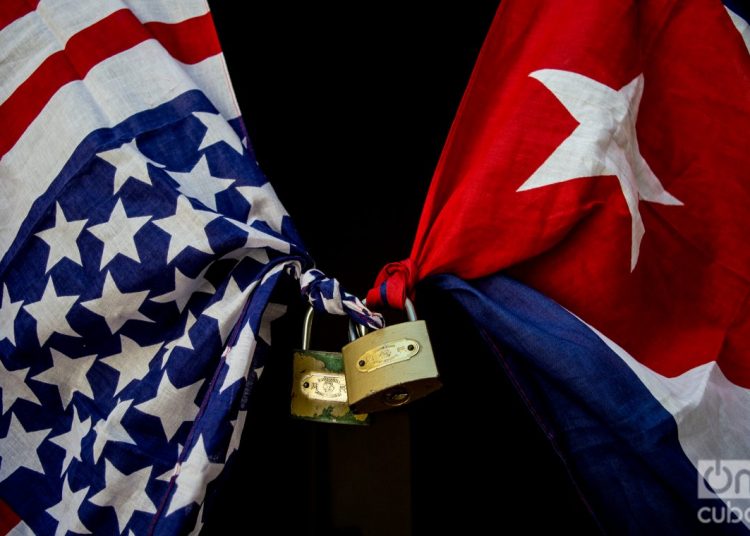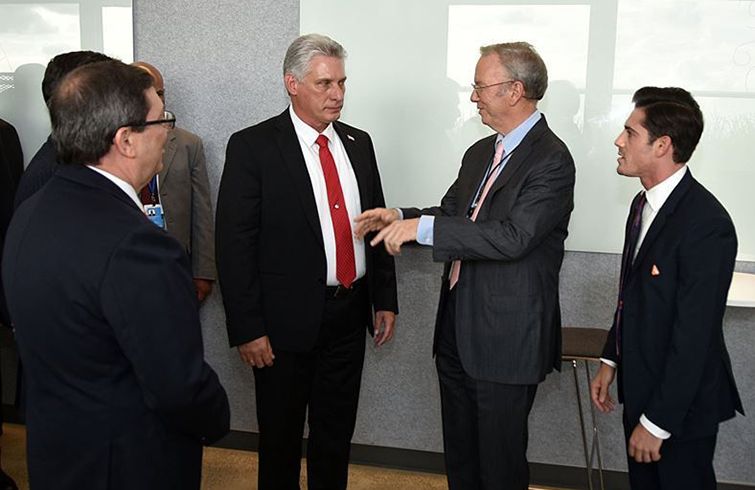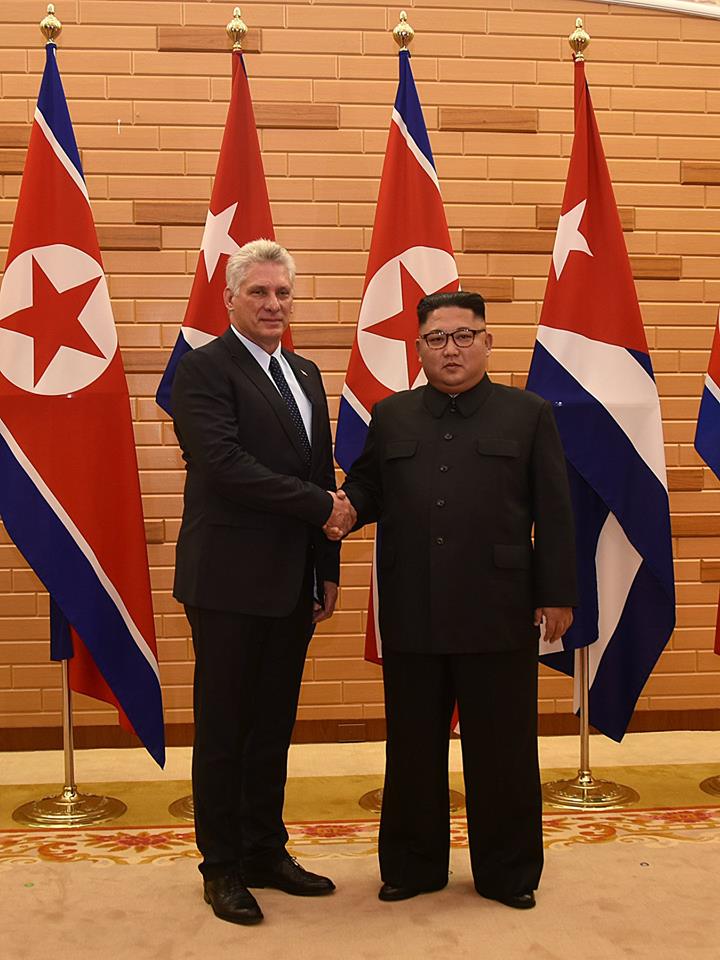Since his presidential inauguration in January 2017, Trump refused to deepen the periodic talks inherited from the Obama administration. Washington avoided working with Cuba in the solution of the diplomatic impasse of the alleged sonic attacks. Trump opted for using these incidents to reduce the diplomatic staff in both embassies, generating breaches of the 1994-1995 migration agreements on the granting of at least 20,000 visas annually.
For electoral reasons, or perhaps his relationship with the Republican caucus in Congress, Trump has handed over to Senator Marco Rubio the Cuba policy. The effects of this decision were immediately noted in at least three dimensions:
- Without a minimum exploration of goodwill contacts, it is difficult to elucidate where Cuba and the United States could reach agreements, what issues are difficult, and on which an approach could be focused.
- Communication with Cuba privileges supporters of the immediate dismantling of the Cuban government as interlocutors, compromising any credibility of independence in a Cuban opposition, reluctant in most cases to express itself clearly against undue intervention in the internal affairs of their country.
- The talks about Cuba with third international actors, such as Latin America, Canada and the European Union, places the issue at a dead end by requiring that they also accept those maximalist positions. Just on the eve of the announcement by Ambassador John Bolton in Miami about the upcoming activation of Chapters III and IV of the Helms-Burton Act, the European commissioners for foreign relations Federica Mogherini, and for commerce Cecilia Maelstrom, seconded by the Spanish Ministry of Foreign Relations, declared themselves in favor of entering into legal litigation against the United States in the World Trade Organization. Then Canadian Foreign Minister Christya Freeland joined the position.
In the absence of partners relevant to its maximalist agenda, not only among the government, but also in Cuban civil society and the international system, the Trump administration increased the aggressive rhetoric, threatening with sanctions aimed at straining the investment climate on the island and hindering the pace, scope and possibilities of the new pro-market structures.
The staff is politics
The very ceremony held in Miami with Ambassador Bolton to announce the new reprisals against Cuba, took the botching up and lack of professionalism of the administration to unknown limits.
For starters, the singer in charge of singing the national anthems of the United States and of Cuba altered the lyrics of the latter, changing the sense of key verses. After that mess, an election rally began, in which Congressman Mario Díaz-Balart, in an exercise of back-to-front “courage profiles,” took it up against President Kennedy, whom he accused of being “weak” and ―how ungrateful! ― of being responsible for the defeat of the 2506 Brigade, when fifty years ago that expeditionary force that invaded Cuba and was defeated by the Cuban government and the related revolutionary militias, did so organized by and subordinated to the U.S. government.
Since June 2017, the Trump administration return back the Cuba policy to the strategy of regime change imposed from Washington, approved in the 1996 Helms-Burton Act.
This vision came about in 2018 with the neoconservative promotions of Mike Pompeo to secretary of state and John Bolton to national security adviser.
In January 2019, the team added Elliott Abrams, in charge of Venezuela, who had been rejected as undersecretary of state for his insults to Trump during the Republican primary.
With these personnel in charge of the Cuba policy, the crisis in Venezuela without signs of being resolved and facing the electoral calendar of 2020 in the United States, the forecast is that of increasing hostility.
John Bolton
John Bolton began his political career in the office of Jesse Helms. In 2005, the Senate removed him as ambassador to the United Nations for harassing professional analysts from the State Department and the CIA about Cuba. Under the Reagan administration, Abrams obstructed dialogues with Cuba within the U.S. mediation on the conflicts in Southern Africa. After receiving offers from Fidel Castro about the situation in Angola, where Cuba had more than 30,000 men, Abrams blocked the transfer of information to Secretary of State George Shultz. The Cuban provision proved constructive for a settlement in which U.S. interests came out successful, when the then head of the U.S. Interests Section in Cuba communicated directly with the African affairs division, bypassing Abrams, arousing the anger of the latter.
For Bolton, Pompeo and Abrams, the priority is not the national interests of the United States, but to satisfy the intransigent group of Cuban exiles in Florida. Their agenda is to align U.S. policy with the revanchist desires and the claiming of properties. It is not about promoting the market economy, or even liberal democracy for Cuba, but about imposing in power those favorite Cuban actors of the intransigent exile. Those actors are irrelevant today in the Cuban context. No matter how prone to fantasizing the promise of “next year in Havana” may seem. In the worst case, the idea mobilizes Cuban-American votes and resources, which the majorities in favor of negotiating with Havana would never give to Trump, due to other discrepancies.
Losing opportunities for influence at a critical juncture
The inability of U.S. policy to play a constructive role in Cuba was manifested in the critical juncture of the rise of a new president on the island, and the debate and approval by referendum of a significant constitutional reform.
Instead of opening spaces for deeper reforms, the Trump administration increased its hostile rhetoric, contributing to group together significant sectors of the Cuban population around patriotism.
In the face of a Cuba with a new leadership, and a Constitution much more open to the market, private property and some human rights, although still far from the model of the Universal Declaration, the United States squandered the golden opportunity to reset relations, and shake off the burden that the demonization of the Castro era represented in American perception and action under the Helms-Burton Act.
The gap between the neoconservative design and the Cuban realities was demonstrated in the General Assembly of the United Nations. Cuba was represented by the new president, Miguel Díaz-Canel. The Cuban president held meetings with counterparts or foreign ministers from Russia, China, the European Union, Spain, Argentina and other international actors; he sought openings with American business sectors, the Cuban-American community, and the educational, cultural and religious sectors, the main actors of the people-to-people exchanges. All but Washington sounded out the new generation of Cuban leaders, predicted to rule the country’s destinies in the next decade.
At the time of the annual vote of the UNGA on the resolution “Need to end the economic, commercial and financial blockade of the United States against Cuba,” the U.S. team tried to include 10 amendments condemning Havana, justifying Washington’s policy in terms of human rights. The result was 11 defeats (one for each rejected amendment and another for the final resolution, 189 against two (U.S. and Israel), without even reflecting the turn to the right in Latin America.
Several U.S. allies explained their vote, arguing that although they agreed with Washington in criticizing the Cuban regime in areas of rights, the policy of hostility against Cuba was not justified in such international norms and was counterproductive to them.
Resilient elements of détente
The year 2018 also demonstrated the limits of pro-embargo lobbying. With supporters of their positions in all the key positions of foreign policy, including their main beekeeper, Mauricio Claver-Carone, in the national security council’s department of Latin America, the aforementioned group has swallowed the cooperation favored by professional services in security, coastal protection and law enforcement.
The exchange begun in previous administrations in the interdiction of narcotics, illegal human trafficking, and talks between the military to manage the perimeter of the Guantanamo naval base has continued, avoiding incidents. In an unprecedented case the prosecutor of West Palm Beach, Florida, participated in the legal prosecution and sentencing by a Havana court of Marcos Yánez, a Cuban émigré who escaped to Cuba after committing a homicide in Florida.
In August, in a coordinated operation with U.S. federal security agencies, the Cuban Ministry of the Interior captured and extradited Joseph Mahmoud Dibee, accused of arson and eco-terrorism, a fugitive from U.S. justice for 12 years.
A positive note, but later canceled in April 2019 by the White House, was the signing of an agreement between the Cuban Baseball Federation (FCB) and the U.S. Major Leagues (MLB) in December 2018. The agreement, similar to those signed with several Asian countries ―Japan, South Korea― allowed the hiring of Cuban baseball players by U.S. teams, subject to compensation to the Cuban Federation for the athletes’ training.
Several players in Cuba, Miami and the MLB praised the agreement to legalize the hiring, closing the road to human trafficking, and avoiding risks that in the past had endangered the athletes, limited by the regulations of both Cuba and the U.S.
This ray of détente and normalization of relations in both countries’ national sport was denounced by Senator Marco Rubio and other representatives of the intransigent Cuban exile. In any case, a positive precedent has been created for the future.
What happened with the agreement between the baseball leagues is a good point to ask what could have been done differently since December 17, 2014 in Cuba and in the anti-embargo sectors, so that the dismantling of the détente policies could not take place or have less of an impact.
The agreement between the Cuban Baseball Federation and the Major Leagues was legally possible since October 2016. In the early years of the Trump administration, the team made up by John Kelly as chief of staff, H.R. McMaster in national security, and Tillerson in the State Department, behaved rather coldly to the demands of Senator Rubio and the Cuban-American congresspersons.
What would have happened if the Trump administration had awoken early with an agreement between the leagues in February or March of 2017? What was more important and related to the interests of Cuba? Marking inconsequential ideological points against Obama and about “the slaving [professional] baseball” or making a political difference by putting Cuban players on the fields of American stadiums under realistically negotiated conditions? Time is a political variable in which asymmetry counts. David does not have the same times as Goliath. His window to use the sling opens and closes.
Another constructive dynamic was the approval by Congress of the Agricultural Improvement Act (2018 Farm Bill), in which anti-embargo legislators included an amendment that opens funds for two federal trade promotion programs (Market Access Program [MAP] and Foreign Market Development [FMD]) in the marketing of U.S. food products in Cuba. Every time the pro-embargo lobby has confronted farmers, from the mid-west where Trump has an important base, it has been defeated. It remains to be seen if Cuba capitalizes on that crack in the wall of hostility.
Against economic reform and the new emerging sectors in Cuba
Already in 2019 the neoconservative team continued to tighten the grip, proving how much the policy of suffocation can be tightened. The new restrictions announced this April 17 by Bolton and Pompeo were an expected tragedy since the State Department announced the cancellation of multiple entry five-year visas.
In Cuba there is a group of entrepreneurs, artists, religious leaders, intellectuals, independent journalists, of a more reformist nature than opponent, who explain very well a non-confrontational logic, by which economic changes, the extension of rights to religious freedom, private property, the strengthening of the role of the law and other issues, in the medium term will lead by their own development to political openings. These sectors, within a Cuba undergoing reforms, had developed an active exchange with the United States according to Obama’s openings. Bolton’s new measures are fundamentally directed against them, as rivals in the making.
The evolutionary vision of reforms may be optimal for Cuba, but it does not enjoy any support in the current U.S. administration. The director of national security for Latin America in the White House, Mauricio Claver-Carone, has made clear his outlook against the development of a mixed economy and a more open civil society in Cuba, if that does not imply the implosion of the one-party system.
A developing Cuba, through a peaceful reform, cancels the possibility of a victorious return of the sectors displaced from power by the 1959 Revolution and the dream of a restitution of property. It is those sectors that received Bolton in the 2506 Brigade get-together.
More than against the Cuban government, the reduction of visas and restrictions on travel and remittances directly affect contact opportunities and openings associated with thousands of Cubans’ visits to the United States after the easing by Cuba of its migration and travel policy in 2013 and the visits of Americans to Cuba.
Elimination of 5-year visas: a mini-blockade for Cuban private sector
It is curious how the same Cuban-American congresspersons who are not able to persuade their voters on the importance of not traveling to Cuba, are pressing the Trump administration to establish new travel restrictions for the rest of the Americans. This contradiction, which treats Americans without families in Cuba as second-class citizens, must be exploited more by the anti-embargo lobby. Senator Marco Rubio himself once questioned the morale of Cuban-Americans by asking for restrictions on travel to Cuba for other Americans when flights from Miami were full of people from the same community.
A challenge for the emerging sectors in the private sphere, autonomous art, free-thinking intellectuality is to understand that, in addition to their conflicts with the restrictions derived from the preference for social control, derived from the one-party character of the Cuban government (such as Decree 349 or the limitations to the expansion of private property), they have to deal with a vision from the Trump administration that is antagonistic to their values and interests.
Unfortunately, that clarity was lacking in many of those who represented that sector when they visited Washington in accordance with Obama’s opening. With the reconciliatory idea in their lips, they wasted opportunities in think tanks and other forums to hit their opponents within the exiled right. Many times in Washington they denounced more the problems that afflict them in Cuba, than those they had with those who lobby in Washington to suffocate the entire Cuban economy. They lost the opportunity, when they had the podium, to denounce the Cuban-American congresspersons, those who support the blockade, who do not represent them at all.
In the face of the electoral cycle
The strengthening of hostility against Cuba has an important electoral side to it, which focuses on the importance of Florida in the U.S. electoral college and the role of right-wing Cubans as the only Latin sector with which Trump’s candidacy can count.
Less than a week before the midterm elections in November, John Bolton traveled to Miami to denounce the “tyrannical troika” (Cuba, Venezuela and Nicaragua). In advance of the electoral narrative of candidate Trump for the presidential elections of 2020, the national security adviser grouped the three countries as a threat to freedom in the hemisphere. Nothing original. If it sounds like Bush’s speech about the “axis of evil” it is because it is a mere lazy copy of the same rhetoric.
The fact that part of the Cuban emigration has supported Trump and has not distanced itself from him in this aspect, deepens the separation gaps between the parts of the Cuban nation on both sides of the Straits of Florida.
With the aim of driving away potential investors from other countries and terrorizing potential Cuban-American investors who are testing the ground based on the new economic plan and President Díaz-Canel’s favorable statements about the émigré community, the State Department deactivated the postponement of Title III of the Helms-Burton Act against around 200 Cuban enterprises and has announced the full application of this section as well as of Title IV.
The activation of Title III of the Helms-Burton Act consists of an opening of the U.S. judicial courts to lawsuits on the “trafficking with stolen property” against Cuban entities or in economic association with Cuba that include among their assets properties lost by U.S. citizens at the time of the nationalizations, or Cubans who later became nationalized Americans. The latter is a retroactive application of U.S. citizenship to citizens who, Cuban at the time of nationalization, should seek reparation in Cuban courts to a problem in which the United States has no jurisdiction. This retroactive application of U.S. citizenship is an unprecedented violation of fundamental legal principles.
By opening the Pandora’s box of Title III of the Helms-Burton Act, the Trump administration breaks with antecedents established by all the Democratic and Republican administrations since the approval of the legislation in 1996.
The act is symbolic because since Helms presented his bill, the State Department warned Congress of its contradiction with international law.
As Foggy Bottom’s attorneys anticipated, the legislation placed the U.S. in conflict with its own allies, some of whom passed antidote laws against the extraterritorial application of U.S. laws.
Some of the immediate effects of the measure are:
1) a new political distraction to be taken advantage of by the Cuban government when, faced with the generational transition in the presidency, the Cuban population demands essential changes in the economy and the policy to adapt the country to the 21st century. It is not that the urgency of changes disappears, but the matrix from which they are discussed allows a patriotic grouping, where the external threat counts, and expectations drop,
2) sowing fear fundamentally affects potential investors from the United States and its allies Canada, Europe and Latin America. The measure, therefore, opens spaces for a more active interaction with powers not associated with a comprehensive reform towards the market and a more open political model, U.S. rivals like Russia, China, and Iran,
3) the conflict with the norms of international law of taking before U.S. courts entities that, operating in Cuba, do not violate Cuban laws, nor of their countries, nor international laws; which expresses the hegemonic paradox of a United States with an imperial policy in conflict with a liberal order developed under its aegis. “Tit for tat.” The rival powers of the United States already use U.S. illegal action to justify their own subversion of liberal international logic, in terms of sanctions and other areas.
All the above constitutes a drain on political capital and long-term U.S. interests, both in Cuba and globally. But it is to be expected, given the anti-liberal ideological matrix of Trump’s team, that the cycle of acrimony will continue. In the face of the 2020 election campaign, the confrontation with Cuba wins in electoral symbolism because it is presented as an international extension of the rejection of the Democratic Party, which is accused of imposing “socialism” on the American people.
Trump will continue to use the ghost of the “red threat” to mobilize a decisive portion of the Republican base that does not share his vision of migration, but would vote for him, scared by a supposedly radicalized Democratic Party. To the extent that the electoral calendar fills up, it is hoped that Trump will visit more Miami and procure more sanctions and hostile rhetoric towards Cuba.














